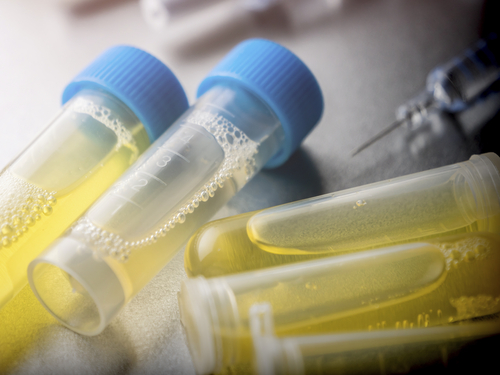BrainStorm Expands Patent Coverage of NurOwn Therapy for ALS, Parkinson’s

BrainStorm Cell Therapeutics is expanding the patent portfolio that protects its NurOwn technology for the treatment of several diseases affecting the central nervous system. The latest U.S. patent claim includes Parkinson’s disease and ALS (amyotrophic lateral sclerosis).
The announcement by BrainStorm follows a Notice of Allowance issued by the U.S. Patent and Trademark Office (USPTO) for the patent application (No. 14/173,846) titled “Isolated Cells and Populations Comprising Same for the Treatment of CNS Diseases.”
A Notice of Allowance indicates the invention qualifies for a patent. But additional fees and patent processes are required before the patent is fully protected. Until then, the patent is still considered as pending.
“We continue to protect our technology through strategic intellectual property [IP] achievements and this Notice of Allowance from the USPTO is a welcome addition to our IP portfolio,” Chaim Lebovits, CEO of BrainStorm, said in a press release.
The development of NurOwn started in the laboratory of Prof. Dani Offen at Tel Aviv University. Offen is currently the chief scientific adviser at BrainStorm. NurOwn is a cell therapy that uses mesenchymal stem cells (MSCs) as the therapeutic core for the treatment of neurodegenerative disorders.
MSCs are precursor cells found throughout the body, especially in fat tissue and bone marrow.
These cells produce signaling molecules that regulate the activity of other cells in their vicinity, which led researchers to investigate them as regulators of immune and inflammatory responses.
But additional studies revealed their activity was broader. One particular feature of these cells was their ability to secrete neurotrophic factors (NTF), which are involved in the growth, survival, and differentiation of nerve cells (neurons). This supported the hypothesis that MSCs could be potential modulators of neurodegeneration, while protecting neurons from damage.
Preclinical studies with mouse models of several neurodegenerative diseases, including ALS, sciatic nerve injury, Parkinson’s disease, and multiple sclerosis, confirmed the efficacy of MSCs on protecting neurons from toxin-induced damage.
In addition, results from a Phase 2 clinical trial (NCT02017912) showed that treatment with NurOwn stem cell therapy was safe and could induce clinically meaningful improvements in ALS patients. The treatment improved the patients’ functional capacity, muscle strength, and respiratory capacity, with a favorable response rate.
Currently, BrainStorm is exploring NurOwn as an ALS treatment in a Phase 3 trial (NCT03280056). The study, which is currently recruiting participants, is being conducted at six ALS clinical centers in the U.S. For information, go to this site and scroll down to Contacts and Locations.






